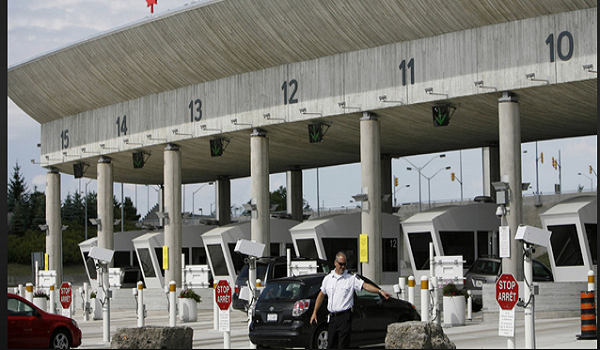Federal government ban ‘flagpoling’ for temporary visa residents
Temporary residents of Canada will no longer be able to utilise the flagpoling process to initiate work or study permits, following a ban from the Canada Border Services Agency.
Flagpoling is the process of obtaining a visa at the U.S. Canada border, named in reference to the flag poles located at the major ports of entry between the two countries.
Those who are putting together applications and renewals for work or study permits will now need to submit them through Immigration, Refugees and Citizenship Canada (IRCC).
“It changes the whole experience in terms of how quickly you can get work permits and study permits,” said Chris Brown, director at Tudor House Immigration Services in Vancouver.
Brown said flagpoling speeds up the process of obtaining a visa “enormously”, and the route is harnessed wherever possible.
“Out of my client base, every opportunity we can use flagpoling, we do,” he said.
Foreign nationals most likely to be affected by the changes are those who are in need of a visa fast, said Brown, particularly those applying for work permits for employers who are in desperate need of workers.
“If there’s an employer in B.C. and they find someone they want to hire, they can go through all the legal ways to hire them and, regardless of what program they choose, that can take months to do,” he said.
“At the end of that process you have an eligibility verification that the applicant can apply for a work permit. During the flagpoling days we could just send them to the border and they get their work permit immediately, and the very next day they are working for their employer.”
Now, applicants are going to have to wait another “three to six months” on top of the initial application waiting time to receive the permit, he said.
“This is going to impact the processing times enormously, and they are all already backlogged. When that time is over, will there still be a job available?”
As of Dec. 31 2024, the average processing time for a work permit issued to those already in Canada was 156 days.
According to CBSA, more than 69,300 visa holders utilised the flagpoling process across Canada between April 1, 2023 and March 31, 2024.
The move to end the process, implemented Dec. 23, is part of a wider plan to strengthen Canada’s border security.
“This practice has taken up significant resources at the border, diverting Canadian and American officers away from important enforcement activities and has contributed to wait times for cross-border travellers,” the CBSA said in a statement.
“Immigration services at the border are meant for individuals arriving in Canada, not for those already in Canada,” it added.
Federal Immigration Minister Marc Miller described flagpoling as “unnecessary” and a process that “diverts resources from critical enforcement activities.”
In the statement released from CBSA, he said the change will “ease border congestion, improve fairness for applicants, and enhance the efficiency and security of our borders.”
“A strong Canada-U.S. relationship keeps people and goods moving safely while protecting both sides of the border,” he added.
The CBSA said work and study permits may still be granted at a port of entry, but in very limited circumstances.
The exemptions include those who are citizens and lawful permanent residents of the United States, professionals and technicians under free trade agreements with the United States, Mexico, Chile, Panama, Peru, Colombia or South Korea, or spouses or common law partners of professionals and technicians under free trade agreements with Panama, Colombia and South Korea.
International truck drivers who hold a work permit, who are required to leave Canada for work, may also be exempt, alongside those who have a pre-existing appointment booked with the CBSA for permit processing.
Those who attempt to flagpole for a work and study permit will be told to submit their application to IRCC unless they meet limited exemptions.
This article was first reported by CTV News













